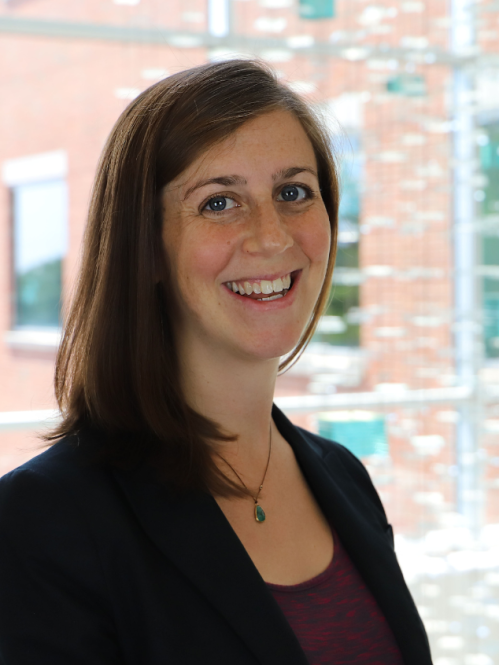Elissa Kozlov, PhD (she/her/hers)

Biography
Elissa Kozlov, Ph.D., is an assistant professor in the Department Health Behavior, Society, and Policy at the Rutgers School of Public Health. Dr. Kozlov has worked in clinical settings that serve older adults and adults with serious illness including hospice, palliative care, cancer hospitals, nursing homes and private practice.
Dr. Kozlov received her doctoral degree in psychology from Washington University in St. Louis in clinical psychology and aging and developmental psychology. Following graduate school, she completed an internship in geropsychology at the Palo Alto Veterans Affairs Medical Center in Palo Alto, California. She then pursued a T32 fellowship at Weill Cornell Medicine in Behavioral Geriatrics.
Research Interests
Dr. Kozlov focuses on improving psychological outcomes for older adults and adults with serious illness and their care partners. As part of this line of research, Dr. Kozlov has documented the gaps in mental health care within palliative care as well as the trajectory and prevalence of depressive symptoms at the end of life. Dr. Kozlov completed a KL2 grant to pilot mHealth mindfulness therapy with caregivers of older adults with cognitive impairment to determine its feasibility, acceptability, and preliminary efficacy at improving quality of life and reducing caregiver stress, anxiety, and depression.
She is currently funded by a K76 Beeson Career Development Award for leaders in clinical aging to study dyadic mHealth mindfulness therapy for older adults with serious illness and their care partners. Dr. Kozlov’s other area of research focuses on how to increase overall access to, awareness of, and knowledge about palliative care. As part of this research program, she developed the Palliative Care Knowledge Scale (PaCKS), a brief scale designed to assess layperson knowledge of palliative care, and piloted a brief web-based intervention to improve knowledge of palliative care.
She also documented knowledge deficits surrounding palliative care and analyzed web-based palliative care information pages to better understand what information about palliative care is available to laypersons. Dr. Kozlov has also developed scales and methodologies to assess unmet palliative care needs in community-dwelling older adults who attend congregate meal sites (e.g., senior centers).